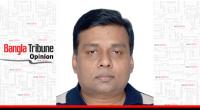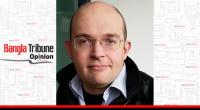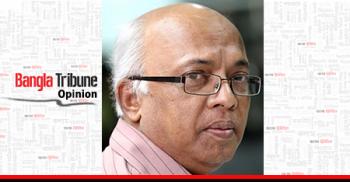 Narendra Modi has lately become enamoured of Henry Kissinger. Reputation, for some men who have always been in the public eye, travels a good many paces before them. There are, in our times, many who would like nothing better than a photo-op with the crusty old diplomat who has played a decisive role in the making of American foreign policy through the 1970s. It was therefore only natural for Modi to be charmed by Kissinger. Like him, there are countless others who would make a beeline to shake Kissinger’s hand.
Narendra Modi has lately become enamoured of Henry Kissinger. Reputation, for some men who have always been in the public eye, travels a good many paces before them. There are, in our times, many who would like nothing better than a photo-op with the crusty old diplomat who has played a decisive role in the making of American foreign policy through the 1970s. It was therefore only natural for Modi to be charmed by Kissinger. Like him, there are countless others who would make a beeline to shake Kissinger’s hand.
Such is the fame of the man. And yet it will not do to paper over the notoriety attached to him. More than a decade ago, arriving at his hotel in Paris from the airport, Henry Kissinger was informed that a warrant for his arrest, issued by a Spanish judge, was on the way. The former US secretary of state did not waste any time. He headed back to the airport and flew straight back to America. In times when the arrest in London of Augusto Pinochet on charges of human rights abuses in Chile had set a new precedent, Kissinger was not willing to take any chances. The charges against him were similar, basically related to his role in the destruction of Cambodia and other countries in his years in power.
There is little question that Kissinger is a brilliant man whose understanding of diplomacy, based as it is on his conception of realpolitik, gave a powerful new dimension to Washington’s foreign policy in his years working with Richard Nixon and Gerald Ford. But it was brilliance that was flawed. A couple of years ago, in a long interview with the Atlantic, a reputed journal, he was upset that Bengalis did not wait in 1971 and had instead gone for a military defeat of Pakistan. His argument was specious and certainly unbelievable: he and Nixon, that is what he said, had persuaded Yahya Khan into agreeing to allow East Pakistan to go it's separate way. The Pakistani dictator would have given Bangladesh its independence in March 1972!
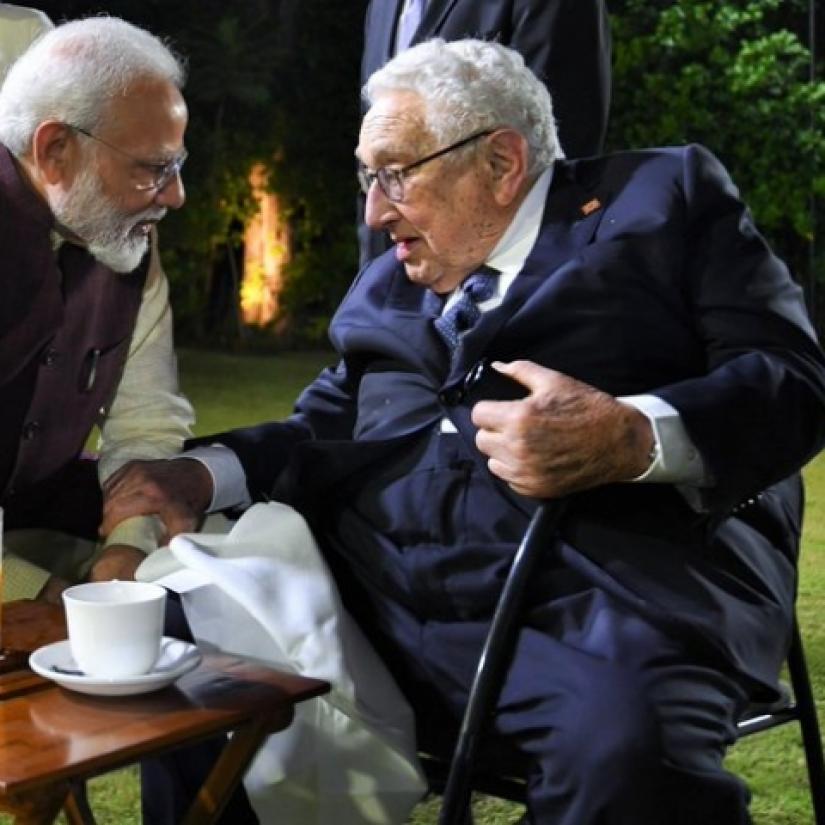 The problem with that assertion by Kissinger is two-fold. First, as the war went on in 1971, he made no such statement and instead conveniently ignored the genocide being perpetrated by the Pakistan army in Bangladesh. In the second, his new statement, more than four decades after the Bangladesh war, could not be regarded as credible because the two other players in the story, Nixon and Yahya Khan, were both in their graves and so the veracity of his statement could not be confirmed. Honest men do not wait decades to speak on policies they had strategized in their days of glory.
The problem with that assertion by Kissinger is two-fold. First, as the war went on in 1971, he made no such statement and instead conveniently ignored the genocide being perpetrated by the Pakistan army in Bangladesh. In the second, his new statement, more than four decades after the Bangladesh war, could not be regarded as credible because the two other players in the story, Nixon and Yahya Khan, were both in their graves and so the veracity of his statement could not be confirmed. Honest men do not wait decades to speak on policies they had strategized in their days of glory.
Perhaps Modi, in his moments of happiness in Kissinger’s company, was not willing to recall the ugly manner in which the Nixon-Kissinger team went out of their way to humiliate and undermine Indira Gandhi during the course of the Bangladesh war. In November 1971, the two men kept the Indian Prime Minister waiting in the White House for forty-five minutes before they would deign to appear for a meeting that had been scheduled earlier. And, of course, there are the transcripts of the expletives and badmouthing Nixon and Kissinger employed in their conversations about Mrs Gandhi.
Intellectual men are sometimes ambitious men and Kissinger was one of them. His comprehension of diplomacy, beginning with his studies of Metternich and Castlereagh, was unparalleled. But there was also in him an unconcealed desire for power, for a place of prominence in diplomatic decision-making. When John F. Kennedy took over as US President in 1961, Kissinger expended all his efforts trying to wangle a position in the new administration. Kennedy ignored him. In the mid-1960s, sensing a probable rise of Nelson Rockefeller to the presidency, he hitched his wagon to the New York Governor’s star. But when the Rockefeller star dimmed, Kissinger bided his time. It was President-elect Nixon’s fortuitous call to him in late 1968 that opened the doors to a happy playing out of his destiny.
Kissinger’s ambitions outran ethics. As Nixon’s National Security Advisor, he unabashedly came in the way of the State Department which was officially led by Secretary of State William P. Rogers. Neither Nixon nor Kissinger thought it necessary to inform Rogers of the latter’s secret trip to China in July 1971. Worse, decisions on American foreign policy became Kissinger’s responsibility through a clear poaching of the role from Rogers, who eventually made his way out of office in 1973. When Kissinger took over as Secretary of State, he made sure that the position of National Security Advisor remained with him. He was not ready even for a second to contemplate a new man taking his place beside the President. He had damaged Rogers. He, therefore, had little desire to have anyone do to him what he had done to Rogers. He kept both offices.
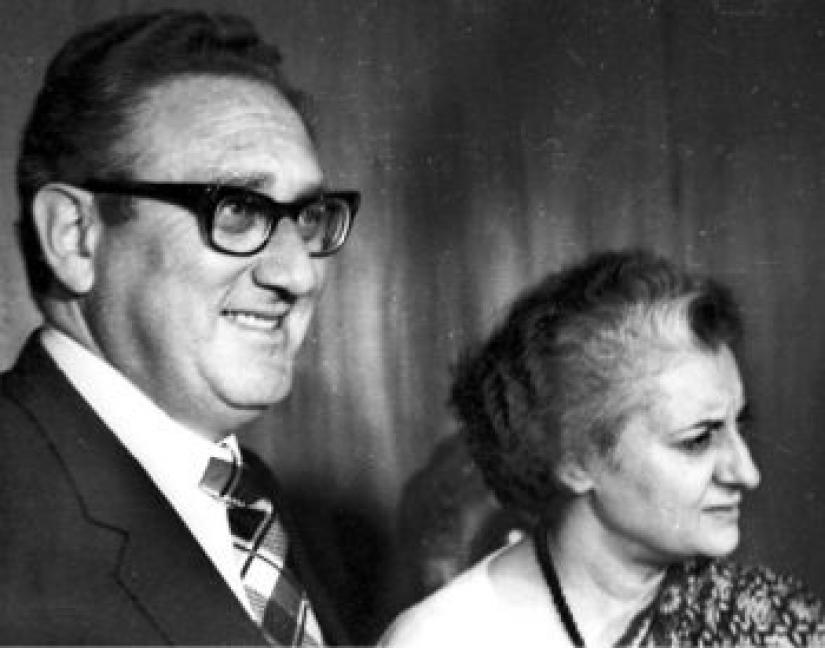 Kissinger’s diplomacy, as he demonstrated all along in his books and speeches, was based on realism. The difficulty with realism is that it often strips foreign policy of the human factor. It ignores the collateral damage that pursuit of it may and does cause other nations. In the early 1970s, Kissinger thought a bombing of neutral Cambodia would block off the Ho Chi Minh trail and so lead to a quick end to the Vietnam War. In the process, thousands of Cambodians perished, their country was destroyed and the war in Vietnam expanded. None of that bothered Kissinger when the Nobel Committee decided in 1973 to jointly give him and his North Vietnamese interlocutor Le Duc Tho the Nobel Prize for Peace. Peace was yet an elusive affair in Vietnam, which is why Tho declined to accept the prize. Kissinger had no such qualms. He accepted the Nobel cheerfully.
Kissinger’s diplomacy, as he demonstrated all along in his books and speeches, was based on realism. The difficulty with realism is that it often strips foreign policy of the human factor. It ignores the collateral damage that pursuit of it may and does cause other nations. In the early 1970s, Kissinger thought a bombing of neutral Cambodia would block off the Ho Chi Minh trail and so lead to a quick end to the Vietnam War. In the process, thousands of Cambodians perished, their country was destroyed and the war in Vietnam expanded. None of that bothered Kissinger when the Nobel Committee decided in 1973 to jointly give him and his North Vietnamese interlocutor Le Duc Tho the Nobel Prize for Peace. Peace was yet an elusive affair in Vietnam, which is why Tho declined to accept the prize. Kissinger had no such qualms. He accepted the Nobel cheerfully.
The notoriety of the ageing American diplomat was carefully sketched by Christopher Hitchens in his revealing work, ‘The Trial of Henry Kissinger’. His dark role in Chile, Cambodia, Bangladesh and other places come under Hitchens’ scanner. The journalist has his hammer come down hard on the man who, post-Yom Kippur 1973, made shuttle diplomacy fashionable. Kissinger and Nixon wished to make the economy scream in Salvador Allende’s Chile and they did. Allende’s elected government was ousted in a violent coup by the country’s military, with overt support from Washington. And Kissinger was aware of the conspiracy that was afoot to remove the government of Bangabandhu Sheikh Mujibur Rahman in Bangladesh. His channels of communication with Khondokar Moshtaq, judiciously interrupted by Tajuddin Ahmad in 1971, were reopened in the period leading up to his visit to Dhaka at the end of 1974. Intriguingly, Tajuddin had already been forced out of Bangabandhu’s government.
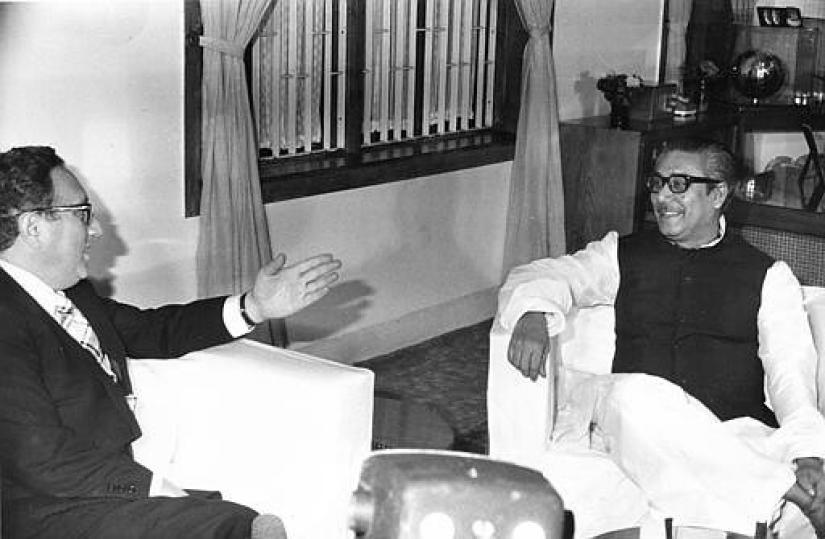 The defeat of President Gerald Ford by Jimmy Carter at the presidential election in 1976 was a rude shock for Kissinger. A desperate man, constantly suspicious of others, he could not imagine life without power. In 1980, once Ronald Reagan had beaten Carter in the race for the White House, Kissinger lobbied hard to be appointed, once again, Secretary of State, this time under Reagan. The new President showed scant interest. Kissinger was thereafter compelled to remain out of power but was occasionally consulted by Presidents from Reagan to Bush1 to Clinton to Bush2 on foreign policy issues. The one President who did not call him or invite him to the White House was Barack Obama. Kissinger has been to the White House as a guest of Donald Trump. Meanwhile, he has come forth with such excellent books as ‘Diplomacy’, ‘World Order’ and ‘On China’ apart from tomes on his years in office in Nixon-Ford America.
The defeat of President Gerald Ford by Jimmy Carter at the presidential election in 1976 was a rude shock for Kissinger. A desperate man, constantly suspicious of others, he could not imagine life without power. In 1980, once Ronald Reagan had beaten Carter in the race for the White House, Kissinger lobbied hard to be appointed, once again, Secretary of State, this time under Reagan. The new President showed scant interest. Kissinger was thereafter compelled to remain out of power but was occasionally consulted by Presidents from Reagan to Bush1 to Clinton to Bush2 on foreign policy issues. The one President who did not call him or invite him to the White House was Barack Obama. Kissinger has been to the White House as a guest of Donald Trump. Meanwhile, he has come forth with such excellent books as ‘Diplomacy’, ‘World Order’ and ‘On China’ apart from tomes on his years in office in Nixon-Ford America.
The story of Henry Kissinger will be read long into the future by historians and diplomats. In that reading, the depth of his intellect will shine as a defining feature of the man. But with that will be revealed the insensitivities which underpinned his approach to nations outside America. Millions have paid the price for his monumental flaws. Millions will remember that his diplomatic strategies did not transform the world into a better place than it had earlier been.
In Henry Kissinger, Narendra Modi was meeting a man whose record of diplomacy can be aptly called ‘a world broken’. It has had little in common with ‘A World Restored’, Kissinger’s scholarly analysis of international relations as pursued by Metternich and Castlereagh in the aftermath of the fall of Napoleon Bonaparte.
Syed Badrul Ahsan is the author of biographies of Bangabandhu Sheikh Mujibur Rahman and Tajuddin Ahmad and writes on politics and diplomacy.

